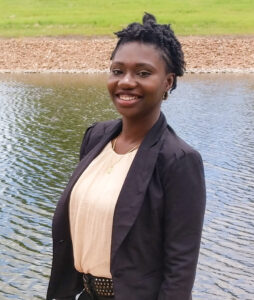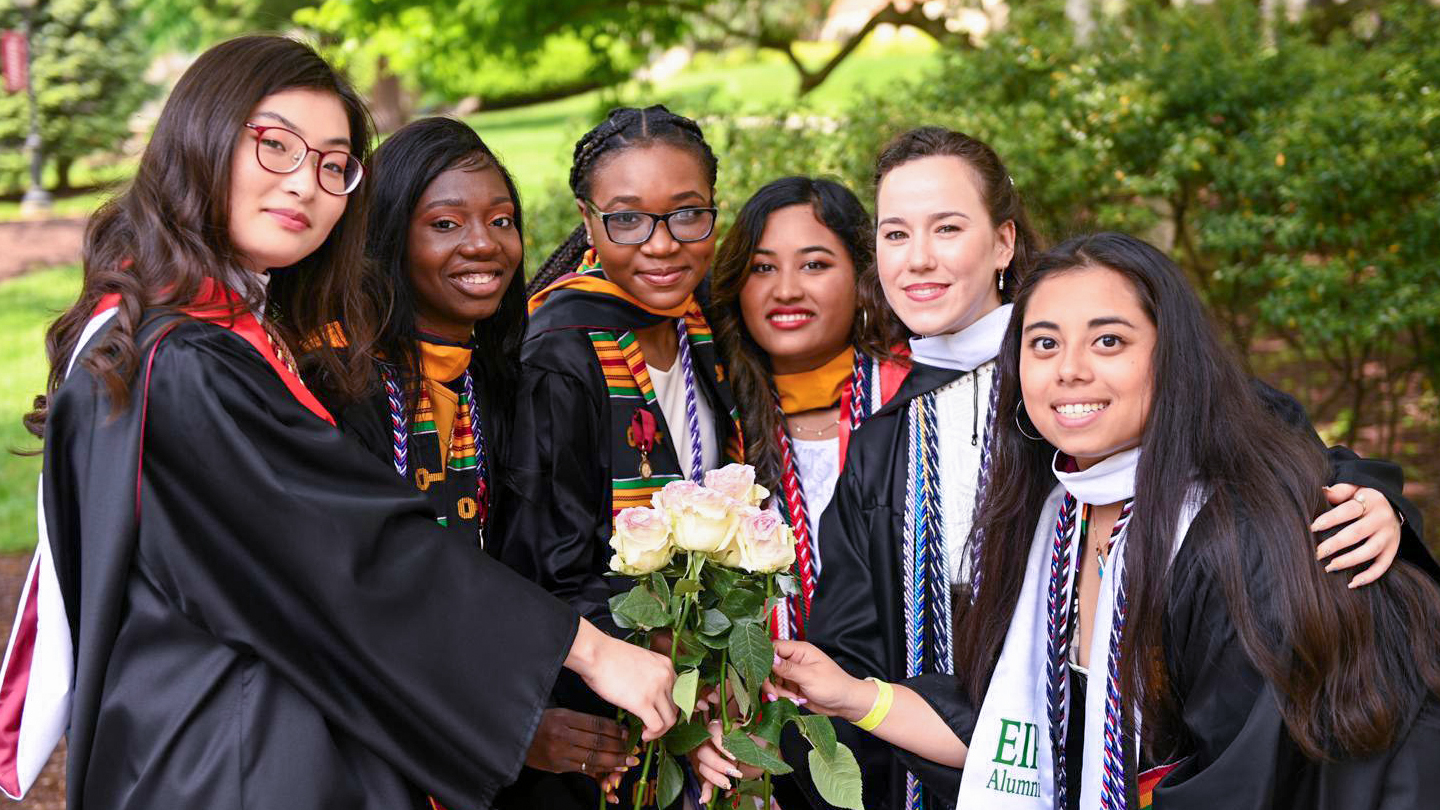Making social impact through science
By Stella Katsipoutis-Varkanis

Daphna Fertil ’22
When Daphna Fertil ’22 speaks about her work, the joyous inflection in her voice reveals just how deep her passion for biomedical engineering research runs. For her, helping others through science is personal: “It makes me happy to see people regain a better quality of life, because I’ve seen a lot of my loved ones go through various ailments. It’s why I do what I do,” says Fertil, who adds that she was inspired to enter the field by her mother’s experiences with early-onset osteoarthritis.
What makes the field of biomedical engineering particularly exciting for Fertil is its unique fusion of scientific research and potential for widespread impact on health care. As a postbaccalaureate researcher, she is currently exploring the intersection of engineering and immunology. By studying muscle regeneration in patients with volumetric muscle loss, Fertil and her team hope to help guide modifications to medical devices and biomaterials that can reduce negative immune responses after implantation—and thus potentially enhance patient recovery. Her exemplary work and commitment to uplifting others recently earned her an honorable mention for the fifth annual Rising Black Scientists Awards, presented by Cell Press, Cell Signaling Technology, and the Elsevier Foundation.
Fertil’s interest in research was sparked early in her college career. After being accepted into the SEO Scholars program in high school—which educates and mentors underserved, low-income public high school students to and through college—she chose to study at Lafayette because of the College’s close-knit community. “I toured the College with the SEO team, and I loved the conversations I had, and connections I made, with students and other people around campus,” she says. “Coming from New York City, the ability to create a community where I could have people to rely on, trust, and build a strong friendship with was something important to me and my undergrad experience.”

Daphna is pictured with friends at Commencement. From left are Huslen Dashpurev ’22, Daphna Fertil ’22, Maxine Nwosu ’22, Adina Shrestha ’22, Milena Berestko ’22, and Flor de Maria Selena Caceres Godoy ’22
As a chemical and biomolecular engineering major, she built particularly strong connections with faculty members like Prof. Joseph Woo, who first introduced her to research through a study on atmospheric chemistry. Together, they explored the effects of ultraviolet light on atmospheric aerosols containing glyoxal and ammonium sulfate. “He helped me understand what research was and how to go about doing it, and he gave me the chance to see that was the path for me,” she says. Fertil adds that she was grateful for the close ties she forged with the faculty in her department, and for the academic support they offered her beyond the classroom. “Being able to work with them helped prepare me for most of the work that I’m currently doing.”
She continued pursuing research opportunities both on and off campus throughout her time as an undergrad, including a summer stint at a Lehigh University lab designing 3D-printed modular biomaterials for tissue engineering and the treatment of early-onset osteoarthritis. The more Fertil engaged in research, the more apparent the lack of diversity in STEM—and subsequent disparities in health care—became to her. “This deepened my desire to work to eliminate inequalities,” she says.
Outside of the lab, Fertil leveraged her role as an executive board member for the National Society of Black Engineers (NSBE) and LEADERS (Leadership and Enrichment Academy for Diverse Emerging Researchers and Scientists) to help foster a supportive environment for underrepresented students in STEM—and make them feel more at home on campus. “I wanted to make a space for students of color in STEM to feel welcome and not feel like they had to change their major because they didn’t feel like they fit in,” Fertil says. Additionally, she collaborated with Student Government to implement an initiative focused on destigmatizing mental health, particularly within the STEM community. Being active on campus helped Fertil step outside of her own comfort zone, allowing her to sharpen her communication skills and build connections with a diverse group of campus community members.

Daphna (left) with Flor de Maria Selena Caceres Godoy ’22 during Homecoming in 2022.
Having the support of Gateway Career Center, Fertil adds, was another key stepping stone along the path that led her to where she is today. “Being able to tap into people like Alana Klass [senior associate director and coordinator for access, equity, and inclusion initiatives] for advice and figure out where I wanted my career to take me, it’s something I truly appreciate from my time at Lafayette,” she says. Fertil also was introduced to her postbaccalaureate program as a first-year student at Lafayette, on a trip organized by Gateway for Lafayette students to see the institute’s campus, meet with postbaccalaureate researchers, and have a firsthand look at the research they were doing. “After talking to other postbaccalaureate researchers and getting to see the cool work they were doing, I always had the goal of coming back after graduating from Lafayette.”
Today, Fertil is applying to graduate school, with her ultimate goal being to one day work full time in a research and development lab in a biotech company. Through her work, she aims to continue addressing health disparities and helping underserved communities gain better access to innovative, potentially lifesaving biomedical therapies. “As a Black woman in STEM,” she says, “I want to bridge the gap between research in the lab and how it gets into people’s hands in the real world.”
To maintain confidentiality, the specific employer is not disclosed.